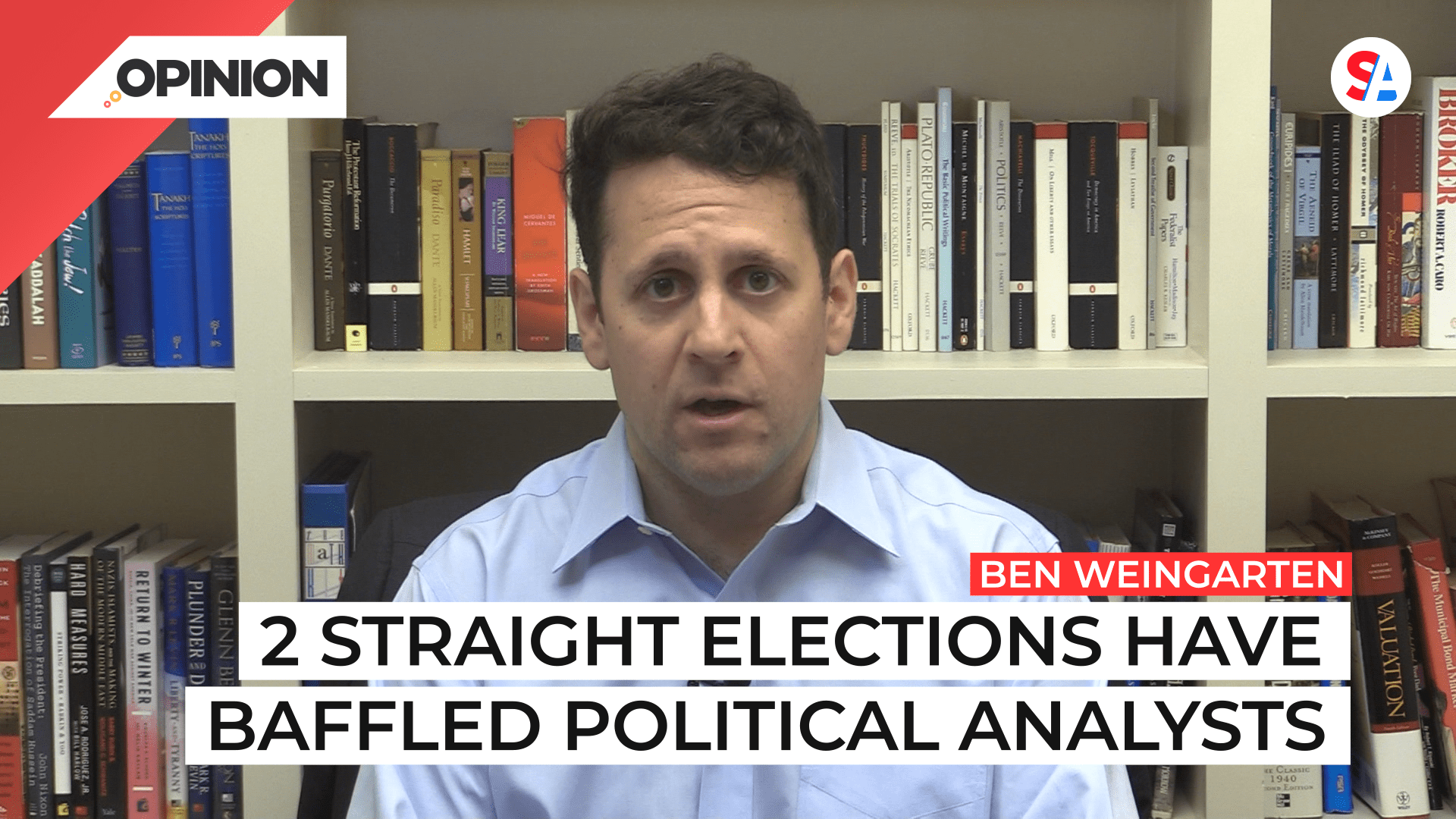
Commentary
-
Our commentary partners will help you reach your own conclusions on complex topics.
The midterm elections provided some historically odd results. Florida had a red wave. Republicans’ best-in-a-generation gains in New York suggested it would have legs. The GOP won the popular vote by several million people – about a 7-point swing from D to R in the popular vote from 2020 to 2022.
Add in the unpopular president, an economy in shambles that voters said was their number one issue, and the big midterm gains the out-of-power party usually makes under these circumstances, and that Republicans only secured the House by a razor-thin margin looks like a major anomaly.
As we said in our post-election commentary, there are any number of explanations for these results. For my money, I think after two straight elections that have baffled political analysts in terms of divergences in outcomes, and massive delays in hotly-contested swing states that we rarely used to see – we ought to look at common elements.
Maybe the most meaningful one is the voting system itself – one increasingly dominated by remote and early voting.
Whether you think it’s decisive, the radical alterations to our voting system from one in-person, with ID on a single election day, to one increasingly remote with lax ID standards, over election weeks, are a distinguishing feature of the last two races. One party advocated for them and was best-positioned to exploit them, and one party seems to have disproportionately reaped the benefits from them. When we see results coming in days after election night, and in these hotly-contested swing races with Democrats overwhelmingly seeming to prevail, it raises legitimate questions.
The questions are baked into the system itself. Mail-in voting leaves us to ponder whether:
The person casting the ballot is who he claims to be; someone other than the voter filling it out; the voter filled the ballot out under the watchful eye of a third party who might have been actively persuading, coercing, or inducing him to vote a certain way. And, whether one could ever hope to detect these and other issues.
We know that activists have targeted nursing homes and other presumably more vulnerable targets to drive absentee votes – obviously with the voters potentially facing pressure and perhaps unaware as to the candidates and the issues at play. Is that really democracy?
The potential issues multiply when we consider the increased duration of early voting, which means more time for fraud and other shenanigans to occur; the normalization of ballot harvesting; dirty voter rolls; and the partisan voter mobilization and participation drives that have marked recent races.
Before recently recanting, Jimmy Carter acknowledged via a bipartisan 2005 report on federal election reform, that “Absentee ballots remain the largest source of potential voter fraud,” citing just the points i did. The report added that “‘third-party’…voter registration drives” like those effectively facilitated by Zuckerbucks in 2020, and perhaps by federal agencies in 2022, “led to a rise in reports of voter registration fraud.”
As the New York Times wrote in 2012, “On the most basic level, absentee voting replaces the oversight that exists at polling places with something akin to an honor system. The Times continued, “Voting by mail is now common enough and problematic enough that election experts say there have been multiple elections in which no one can say with confidence which candidate was the deserved winner.”
Remote voting at very minimum presents the potential for less safe and secure elections. There have been myriad instances of people engaging in related fraud – even as hard as it is to detect; even the non-fraudulent behavior itself is sketchy or at minimum, unethical. The remote and early voting scheme calls into question the integrity of our races. Skepticism grows when you have in-person election day voters – disproportionately Republicans – facing hardships at the polls.
In 2022, from Maricopa County, Arizona to Mercer County, New Jersey, electronic tabulation machines malfunctioned en masse. Machines with literally one job on the one day they’re supposed to work, didn’t. The RNC alleged voter disenfranchisement in Maricopa, and sought to extend the time period on election night so people turned away or who faced issues could vote, but a judge dismissed the case.
Democrats who have fought tooth and nail for all manner of absentee ballots cast improperly to be counted – whether postmarked late or received after election day, or mismarked were silent.
In Luzerne County, Pennsylvania, 44 polling locations reportedly ran out of paper to print ballots. Ballot machines went down in Harris County, Texas. Problems proliferated nationwide.
And then Arizona and Nevada of course took days to report their results.
How is it possible in the most technologically advanced time in human history, when Florida with a population two times greater than Arizona and Nevada combined, could report results on Election Night, but the Sun Belt states couldn’t? It’s not a matter of *couldn’t*… it’s a choice to pursue a voting system that undermines our confidence in it.
The longer the time to election day and the more remote the vote, the greater opportunity for fraud and shenanigans – or at minimum the perception of it. Likewise, the longer time to count the votes, the greater our skepticism about the results.
Republicans now face a question: If the temporary COVID-driven emergency voting measures are now permanent and normal and without state control, they can’t vote return to the traditional elections model, then should they compete like Democrats and go all-in on ballot harvesting efforts however unsavory, driving early and absentee votes too?
Practically, they may have to. But this is an inadvertent admission that the American people themselves, by way of their leaders, no longer believe in an election system of the highest integrity. That we have now embraced a rotten system for two cycles is a telling commentary on the perilous state of our republic.
-
‘Deep State’ failed to protect Trump
The stated mission of the United States Secret Service is to “ensure the safety and security of our protectees.” However, on July 13 in Butler, Pennsylvania, the Secret Service allowed a lone would-be assassin to fire a shot at former President Donald Trump, grazing his ear with a bullet. Secret Service Director Kimberly Cheatle resigned…
-
The Regime once again meddling in election to hurt Trump
On Tuesday, July 9, the U.S. Department of Justice issued a cybersecurity advisory warning companies about a Russian social media bot farm. U.S. officials told reporters that these Russian bots are targeting U.S. voter groups in key swing states and implied that the goal is to undermine President Joe Biden. Watch the above video as…
-
Clarence Thomas has it right on presidential immunity case
On July 1, the United States Supreme Court ruled in a 6-3 majority opinion for Trump v. United States that American presidents have absolute immunity from prosecution for actions that fall within their constitutional duties. The ruling asserts that evidence of official criminal acts committed by a president cannot even be presented in any U.S.…
-
SCOTUS’ Murthy v. Missouri ruling will live in infamy
On June 26, the U.S. Supreme Court sided with the federal government in the Murthy v. Missouri case regarding official communications between the government and social media platforms. In a 6-3 decision written by Justice Amy Coney Barrett, the court stated that the plaintiffs did not have the legal standing to seek an injunction against…
-
Anti-Trumpers care about power, not democracy
News commentators across the political spectrum — including some contributors here at Straight Arrow News — have warned Americans about Donald Trump’s aspirations to make himself a dictator and effectively end the American republic if he regains power in November. Their warnings cite Trump’s own legal arguments, public statements and past behavior, including the attempted…
Latest Opinions
-
 U.S. Department of Defense
U.S. Department of Defense
Congress still trying to figure out how to reduce wasteful military spending
-
 DVIDS
DVIDS
US Navy, Air Force making waves with new weapons at RIMPAC
-
 Getty Images
Getty Images
Israeli PM Netanyahu meets with Trump at Mar-a-Lago
-
 Getty Images
Getty Images
Growing US nuclear power resurgence reaches the nation’s heartland
-
 Getty Images
Getty Images
Beer from the sun, other solar thermal projects get government funding
Popular Opinions
-
In addition to the facts, we believe it’s vital to hear perspectives from all sides of the political spectrum.


